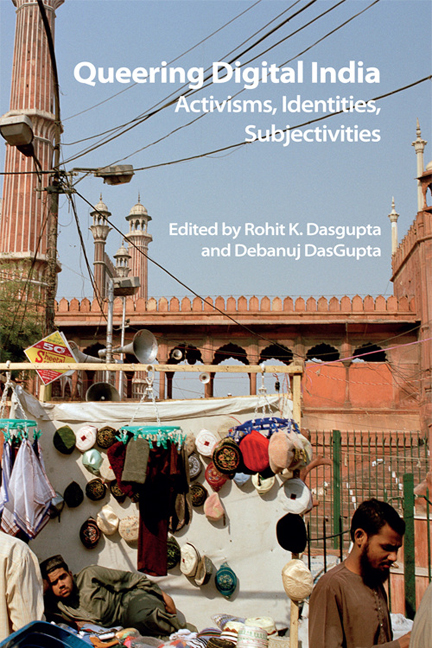9 - Disciplining the ‘Delinquent’: Situating Virtual Intimacies, Bodies and Pleasures Among Friendship Networks of Young Men in Kolkata, India
Published online by Cambridge University Press: 28 April 2021
Summary
Bodies of runaway boys and working-class young men are marked as delinquent and incommensurate within the project of Indian neoliberal democracy. In recent times media reports related to the brutal rape of Jyoti Singh in New Delhi and Suzette Jordan in Kolkata situate the young men as barbaric, pathological and improperly gendered. The face of the six young men who raped Jyoti Singh circulate on multiple memes on Facebook (FB) and has come to signal ‘India's excess man problem’. The Indian population has an imbalanced sex/gender ratio. This imbalance is rooted in the violent killing of girl children, sex-selection and female foeticide. India's ‘excess man problem’ marks young men's sexuality as dangerous, since they are more likely to enact violent crimes against women. The violent capacities of the young men are attributed to the lack of marriageable young women in India. In this chapter, I will first situate demographic studies that construct the figure of the young working-class man or the runaway boy as dangerous and delinquent. I will then engage with the work of PDS, a non-governmental organisation located in Kolkata and working with runaway boys and young men in eighteen districts within West Bengal, India. PDS operates as an NGO that seeks to reform the young men from unruly bodies into productive subjects by undertaking gender-sensitivity and job readiness trainings. Utilising the annual reports of PDS and media coverage of recent sensational rape incidents in India, I argue the young men and runaway boys are marked as incommensurate with India's neoliberal modernity. Bodies of the young men and runaway boys (from peri-urban locations) have come to represent a failed masculine subject position that is in need of reformation.
The final section of this chapter displaces narratives of failure, criminalisation and reform by journeying into the digital spaces mobilised by young men involved with PDS. Intimacies forged through digital spaces such as FB among staff and volunteers of PDS allow for the creation of virtual intimacies that hold potentials for cutting through the discipline and regulation of the young men's bodies. The young men's bodies take on multiple meanings through the poetic memes, emojis that they post on FB messenger and WhatsApp chats.
- Type
- Chapter
- Information
- Queering Digital IndiaActivisms, Identities, Subjectivities, pp. 165 - 179Publisher: Edinburgh University PressPrint publication year: 2018



